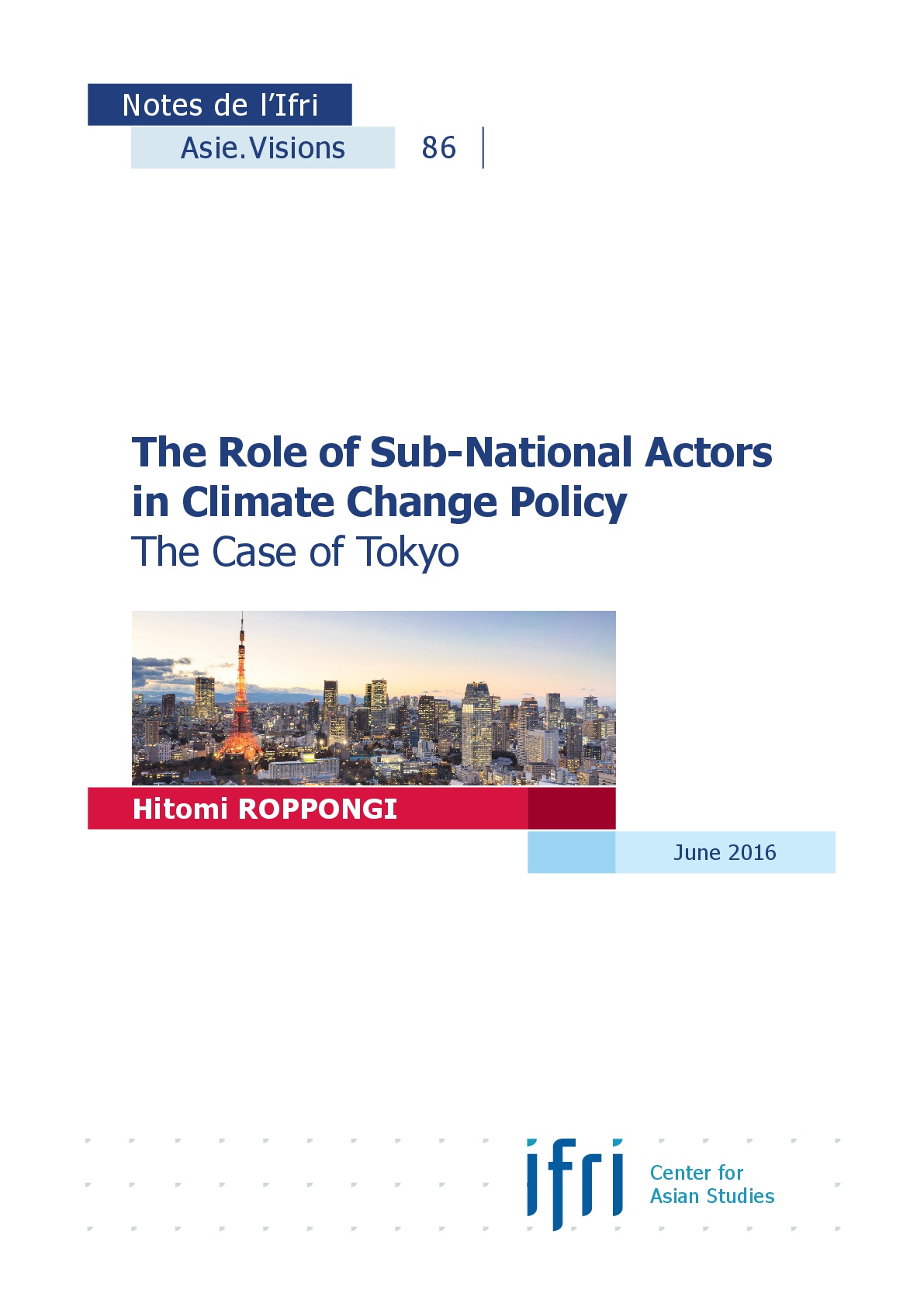The Role of Sub-National Actors in Climate Change Policy. The Case of Tokyo

Tokyo is known as a pioneer throughout the history of Japan’s environmental policy, often being compared to California in the United States or Paris in France. Following the global trend of growing local initiatives tackling climate change, Tokyo introduced a cap-and-trade scheme in 2010 ahead of a national implementation.

The Tokyo Cap-and-Trade Program is the first of its kind that regulates CO2 emissions from all business sectors, where energy consumers are defined in terms of the business establishments they own. Tokyo’s initiative is largely seen as a reaction to the modest national commitment, following the tradition of center-local rivalry.
This study first explains the centre-local relationship in the history of Japan’s environmental governance. It then analyzes the development of the Tokyo’s flagship climate policy and its implications for national and other sub-national governments in Japan. The tactics used by the Tokyo Metropolitan Government to overcome business opposition typically seen in the introduction of GHG control, and future policy challenges are also discussed. The study finds that Tokyo’s policy encourages behavioral changes and technological improvement in the business sector, going a step beyond the existing culture of energy conservation in Japan. An emission trading scheme is often associated with the collapse of carbon markets and the “money game”, rather than a practical tool to reduce CO2 emissions, but the Tokyo Cap-and-Trade Program has demonstrated a policy impact that recasts such an image. A known case of policy diffusion to Saitama prefecture, an immediate neighbor of Tokyo with the fifth largest population in Japan, is also discussed to elaborate on the potential domestic diffusion of the policy.
Download the full analysis
This page contains only a summary of our work. If you would like to have access to all the information from our research on the subject, you can download the full version in PDF format.
The Role of Sub-National Actors in Climate Change Policy. The Case of Tokyo
Related centers and programs
Discover our other research centers and programsFind out more
Discover all our analysesJapan’s Takaichi Landslide: A New Face of Power
Prime Minister Sanae Takaichi has turned her exceptional popularity into a historic political victory. The snap elections of February 8 delivered an overwhelming majority for the Liberal Democratic Party (LDP), driven by strong support from young voters, drawn to her iconoclastic and dynamic image, and from conservative voters reassured by her vision of national assertiveness. This popularity lays the foundation for an ambitious strategy on both the domestic and international fronts.
The U.S. Policy Toward Taiwan Beyond Donald Trump: Mapping the American Stakeholders of U.S.-Taiwan Relations
Donald Trump’s return to the White House reintroduced acute uncertainty into the security commitment of the United States (U.S.) to Taiwan. Unlike President Joe Biden, who repeatedly stated the determination to defend Taiwan, President Trump refrains from commenting on the hypothetical U.S. response in the context of a cross-Strait crisis.

China’s Strategy Toward Pacific Island countries: Countering Taiwan and Western Influence
Over the past decade, China has deployed a diplomatic strategy toward the Pacific Island Countries (PICs). This strategy pursues two main objectives: countering Taiwan's diplomatic influence in the region and countering the influence of liberal democracies in what Beijing refers to as the "Global South."

Opening up the G7 to South Korea to Address Contemporary Global Challenges
The G7’s global influence has diminished as powers like China reshape international governance through initiatives such as BRICS and the Shanghai Cooperation Organisation (SCO). With the G7 now representing just 10 per cent of the world’s population and 28 per cent of global GDP, its relevance is increasingly questioned.









